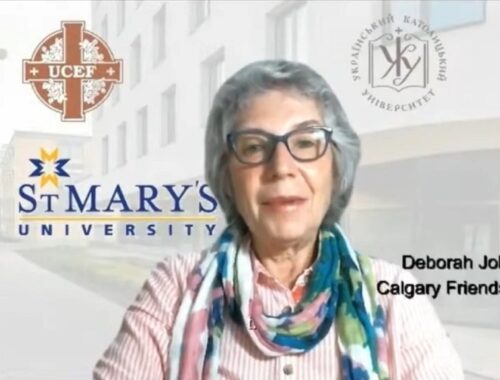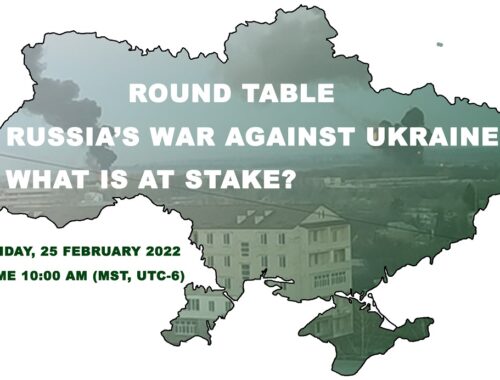
Diplomacy is still the way to go, experts believe
Russian troops have entered eastern Ukraine, but some international experts still believe that diplomacy is the best approach in deterring Russian aggression against Ukraine.
“Even before the scale of the Russian build-up was fully understood, U.S. diplomats and defense officials pulled together all the intelligence and did a good job of convincing allies of the seriousness of the threat and the need for the Alliance to get ahead of it,” said Ambassador Alexander Vershbow, distinguished fellow at the Atlantic Council’s Eurasia Center and Scowcroft Center for Strategy and Security, on Friday during Atlantic Council’s discussion “Last chance: Preventing Europe’s next big war”.
Vershbow said that diplomatic approach to Russia forged a united front with allies and may still at this late hour prevent the largest war in Europe since the Second World War.
He described three pillars of deterring the next big war in Europe.
The first pillar is coordinating with the Europeans on a robust package of sanctions. Vershbow said that will have a far more damaging effect than any previous sanctions applied to Russia.
The second pillar of deterrence was to raise the direct costs to the Russians of any invasion by accelerating the provision of defensive weapons to Ukraine’s armed forces. Vershbow said that while this effort could have started a little earlier, the Russians now know that they will incur significant casualties, as well as the possibility of long-term resistance by the Ukrainian people if they invade Ukraine again.
The third pillar is a unified NATO and bolstered NATO’s defenses.
“Now, there’s a fourth pillar and that’s diplomacy,” Vershbow said.
He said that while the U.S. and the Allies rejected extravagant Russian proposals in their two draft treaties, they offered to negotiate on arms control and risk reduction measures that could address at least some of the Russians declared concerns such as deploying ballistic missiles on Ukrainian territory against Russia.
Vershbow thinks that diplomacy has affected Putin’s calculations regarding the risks against the benefits of starting a war with Ukraine. He also said that it may lead Putin to avoid crossing the border with tanks.
Diplomacy has unified the Western allies, said Ambassador Daniel Fried, Weiser Family Distinguished Fellow at the Atlantic Council.
“The Western allies are knitted up in a solid fashion,” he said. “Putin is facing a solid front of Western resistance. He’s looked for holes, he’s looked for divisions, he hasn’t found them.”
But Fried said that although Putin has not found any holes in Western unity, it is not a guarantee against a war that may come.
The experts refuse to believe that a major invasion is coming.
“I would argue that the last thing that Putin wants to do is to invade because it will be a disaster,” said Dr. Harlan Ullman, senior advisor at the Atlantic Council. “If he does anything, it’s likely to be short of using major force. If he’s going to do anything, it would be something that would be low level, like seizing Snake islands at the very western end of the Black Sea because it’s not occupied by anybody.”
Ullman said that if there was a massive attack, it would require 300-400 thousand troops, and the West knows from own experiences that the Russians do not have that capacity.
A columnist with Novaya Gazeta in Moscow shared in the doubts about a big war.
“I still hope that a big war could be avoided and most likely will be avoided. But we’re very close,” said defense analyst Dr. Pavel Felgenhauer.
Felgenhauer said that Russia sees the present framework of European security totally unacceptable, and wants to drastically rewrite it.
“[Putin] believes he has the means to press the West into accepting Russia’s point of view,” Felgenhauer said. “Russia is in a strong position to demand Western concessions, and push back the U.S. influence in Europe.”
“Then, most likely, if this is achieved, Ukraine will fall into Russian lap as a bonus,” Felgenhauer said.
The experts agree that upon invasion Putin faces a strong reaction from the West.
Vershbow believes that the fabricated crisis on Ukraine’s borders may lead to a much bigger NATO presence on Russia’s western borders.
“Much bigger than if they hadn’t started this crisis in the first place,” he said.
“Even though the Russians are ready to [invade], with multiple pretexts being generated by the minute, this doesn’t mean that Putin is going to give up on his goal of subjugating Ukraine and undermining NATO,” Vershbow said.
This article is written under the Local Journalism Initiative agreement
Kateryna Bandura for New Pathway – Ukrainian News
Follow me on social media!You May Also Like

Calgary Friends of Ukrainian Catholic University hold a fundraiser
November 2, 2021
Threads That Connect: Edmonton celebrates Ukrainian heritage through fashion
September 28, 2021

